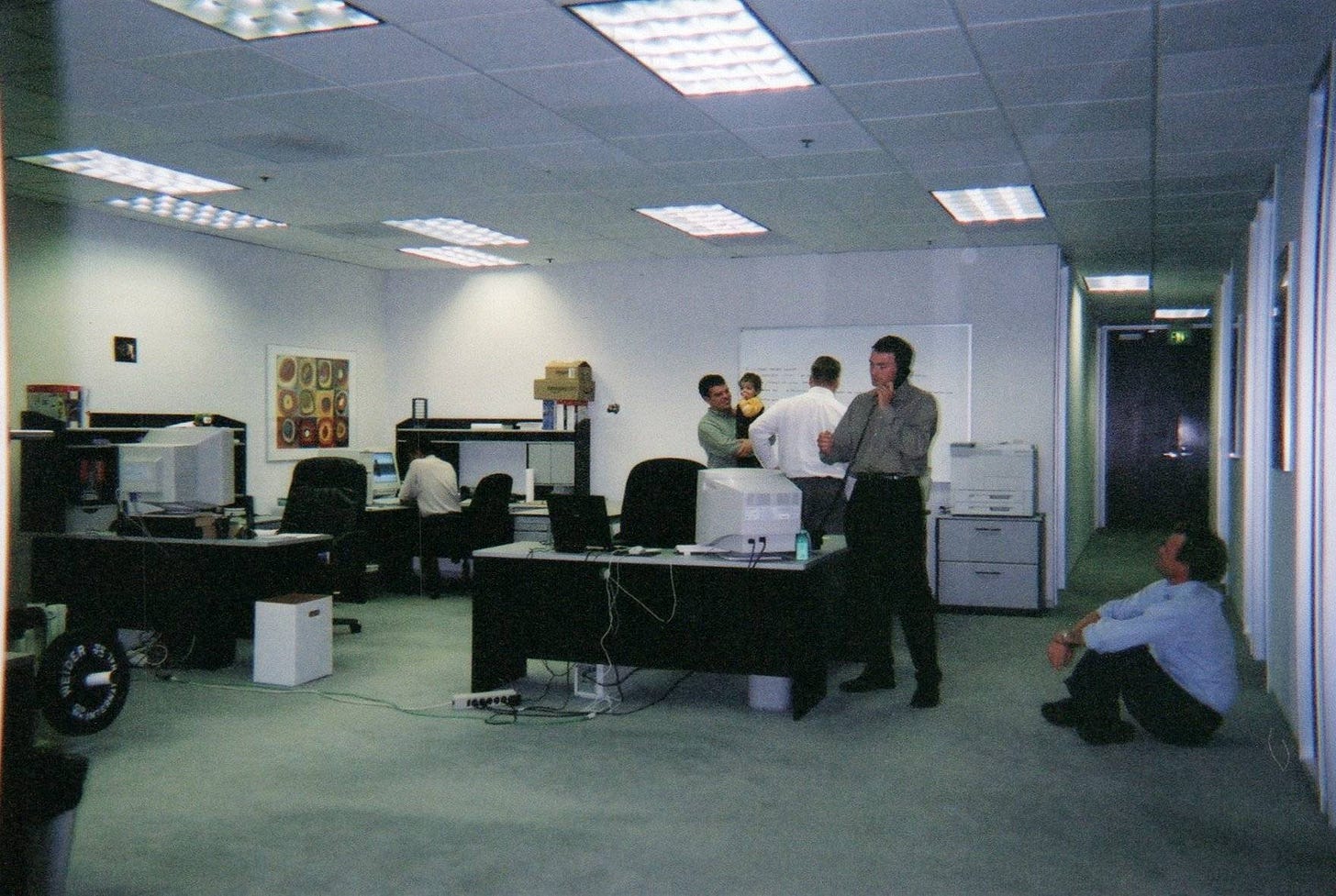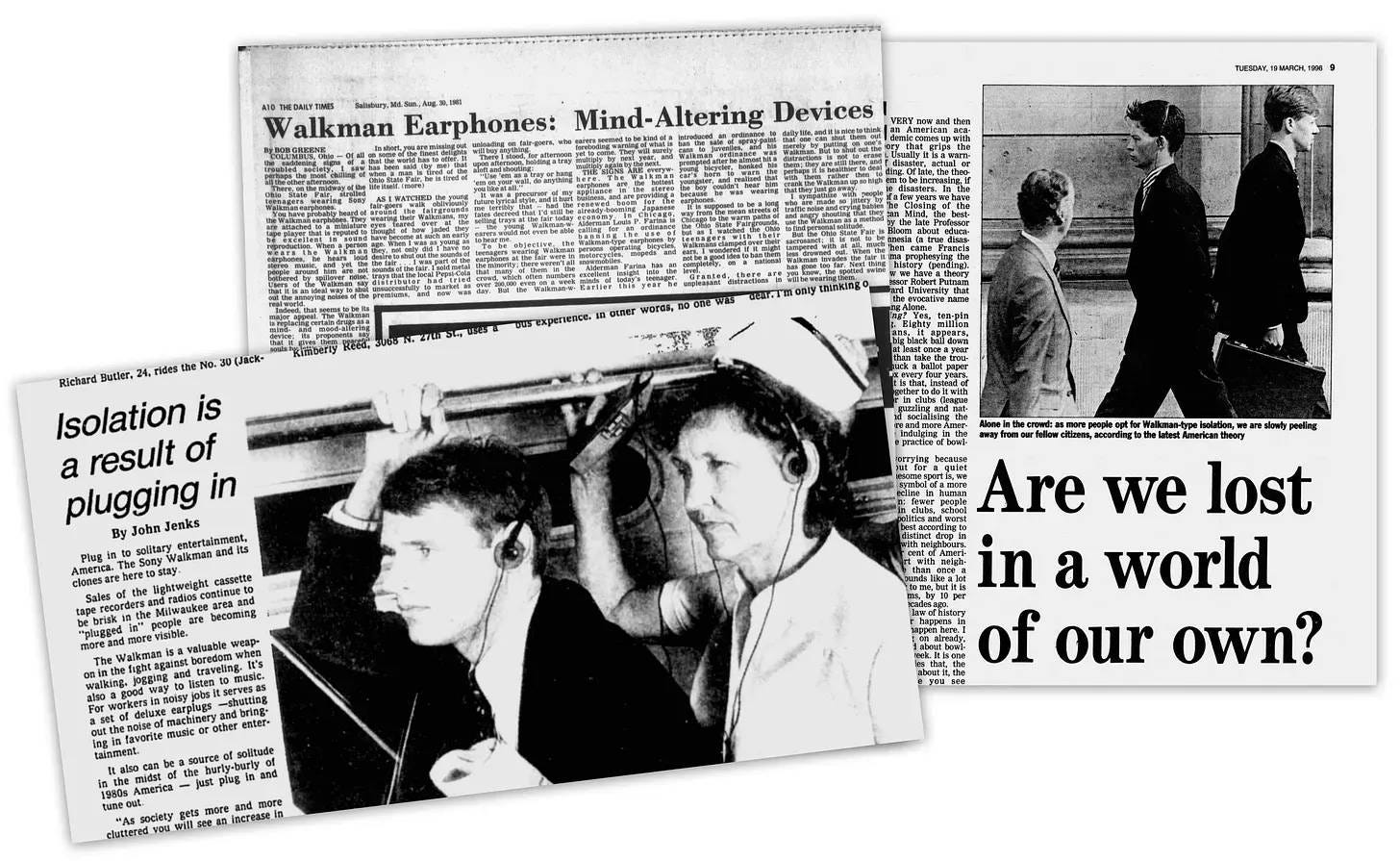The Sunday Signal: Transatlantic Insights, Innovation Outrage, and AI Panic
Essential Insights on Tech’s Impact, Leadership Lessons, and Navigating Human Potential. Issue #15 – Sunday 27 July 2025
⏱️ 10 min read
The Bottom Line Up Front
Returning home after 23 years in Silicon Valley has highlighted significant cultural contrasts between the UK and the US, particularly affecting business innovation. Additionally, Britain's R&D tax credits are scandalously misused, while exaggerated fears about new technology highlight humanity’s timeless anxiety around progress.
Personal Insights from Across the Pond
Adapted from my latest Yorkshire Post column.
After 23 remarkable years spent in Silicon Valley, returning home to Yorkshire has illuminated stark contrasts between the UK and the US. Initially drawn to the electric optimism of the dot-com boom, I experienced America’s audacious approach to innovation firsthand. Yet, certain British values, long undervalued, now stand out as profound advantages.
In Silicon Valley, healthcare was a costly burden. My company paid a staggering $2,500 monthly per employee for health insurance, dwarfing UK private plan costs. In America, healthcare bankruptcies aren’t unusual; I’ll never forget a friend’s daughter who tragically passed away due to unaffordable care while starting a business. Here, the NHS is not only humane but also a business advantage, freeing entrepreneurs from medical anxiety to innovate boldly.
Food quality and cost was another striking difference. US grocery shelves are dominated by products saturated with high-fructose corn syrup, driven by industry lobbying rather than health concerns. Yorkshire markets, by contrast, offer quality produce without exorbitant pricing, reflecting a food system prioritising consumer health.
Venture capital practices also sharply diverge. American VCs largely comprise former founders who invest in ambitious, visionary ideas, asking: "Could this change the world?" UK investors typically lack entrepreneurial experience, overly relying on rigid financial metrics, stifling innovation. Yorkshire's vibrant tech ecosystem needs investors with courage, experience, and risk appetite.
Lastly, Britain's lingering class hierarchy starkly contrasts with the American celebration of meritocracy. In the US, humble roots are proudly declared. Conversely, in the UK, questions about schools and backgrounds subtly reinforce elitism. Yorkshire must discard outdated snobbery; innovation thrives when ideas eclipse accents.
Returning home, I appreciate Yorkshire's fairness, community spirit, and resilience. If we blend Silicon Valley's ambition with our local values, Britain can forge a uniquely powerful economic and cultural identity.
R&D Tax Credits: Britain’s Innovation Scandal
The misuse of Britain's R&D tax credits infuriates me. At a recent summit, technology entrepreneur Stan Boland pinpointed the uncomfortable truth: these credits have morphed into an extravagant subsidy scheme rather than fostering real innovation. Last year, taxpayers spent £9.5 billion on this programme, yet productivity stagnates and innovation falters.
Premier League football clubs epitomise this absurdity. Manchester United claimed £1.8 million in credits; Chelsea pocketed over £2 million. Even rugby clubs and restaurants are extracting significant taxpayer funds under the guise of innovation. Meanwhile, consultancies exploit loopholes, profiting handsomely while genuine innovators languish.
Worse still, substantial portions of R&D credits support zombie companies, firms barely surviving year to year without delivering meaningful innovation or productivity improvements. These credits now subsidise luxury lifestyles and struggling businesses rather than groundbreaking research. Money intended to drive technological breakthroughs supports millionaire athletes’ lavish tastes, opportunistic consultants, and unproductive enterprises.
The solution demands radical reform, stringent assessments, and transparent standards ensuring funds support genuine innovators. Britain’s future depends on authentic breakthroughs, not subsidising wealthy clubs, corporate luxury, or zombie companies. It's time taxpayers’ money returned to fostering real innovation.
Yorkshire’s Practical AI Innovation: A Blueprint for Investment
Recent headlines dramatically warn that AI chatbots might induce psychosis. A piece in The Week even suggests that AI chatbots like ChatGPT could significantly impact mental health, creating alarming scenarios of potential psychosis. Such sensational claims about new technology aren't unprecedented. History reveals a consistent pattern of exaggerated fears and anxiety around innovation, as documented vividly by the Pessimists Archive.
In the 1980s, newspapers genuinely warned that Sony Walkmans were "mind-altering devices" capable of isolating and damaging youth. Earlier in the 20th century, Jazz music was dramatically accused of causing the "delinquency of girls," with moral panic headlines declaring it dangerously corruptive. Even the saxophone, now viewed as an elegant instrument, once faced fierce moral outrage, branded as harmful to societal values. In the 1950s, AI pioneer Dr Norbert Wiener famously cautioned that artificial intelligence could render humanity obsolete.
Each era of innovation encounters fierce resistance and predictions of doom. Yet, repeatedly, these initial fears prove groundless. The Walkman didn’t ruin society; it revolutionised how we experience music. Jazz, once scandalous, is now recognised as a sophisticated art form. AI, like its predecessors, certainly poses challenges, but the exaggerated fears of widespread psychosis or societal collapse are likely misplaced.
While cautious oversight is prudent, historical context reassures us that today's alarming headlines will likely appear as overreactions to future generations. Balanced evaluation, sensible regulation, and openness to new possibilities will help society harness AI’s remarkable potential, avoiding the needless anxiety that has historically accompanied technological progress.
🚀 Final Thought
Britain's Opportunity for Bold Innovation
Returning to Yorkshire after decades in Silicon Valley has been illuminating. The contrasts in healthcare, investment culture, and social structures reinforce that Britain's approach to innovation must adapt quickly. The scandalous misuse of R&D tax credits is symptomatic of deeper issues; too often, public funds are captured by interests that contribute little to genuine technological or economic progress.
Meanwhile, exaggerated fears about AI and other innovations distract from more pressing issues. The greatest risk isn't technology itself, but our failure to adequately invest, support, and guide its development. We stand at a defining moment: Britain must reclaim its ambition, harness genuine innovation, and ensure taxpayer resources effectively drive progress, prosperity, and social good.
Our collective responsibility is clear. We must cultivate bold, informed leadership willing to discard outdated practices and invest strategically in genuine innovation. The UK has the creativity, talent, and ambition to lead globally, provided we decisively tackle systemic flaws and embrace, rather than fear, technological advancement. The future belongs to those who act bravely today. Let's ensure Britain is among them.
Until next Sunday,
David
David Richards MBE is a technology entrepreneur, educator, and commentator. The Sunday Signal offers weekly insights at the intersection of technology, society, and human potential.








Having also co-founded a company while living in the states, and worked in startups in the UK and US, I agree with your premise. Risk aversion and cynicism hold the UK back. In the UK business people look down their noses at anything that is new and unproven. They don't see it as an opportunity for competitive advantage, that needs to be derisked and harnessed.